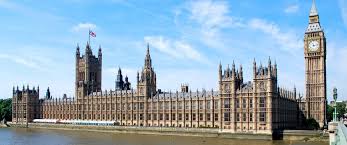2 May 2018.
Anti-corruption campaigners scored a huge victory after the government gave in to pressure to end the secret hoarding of dirty money in UK tax havens. Although Prime Minister Theresa May was not in favour of the motion, the majority of the House felt that the overseas territories should have public registers ahead of it becoming the international standard, as set by the Financial Action Task Force. The bill was backed by both Labour and Tory MPs. The bill gives powers to freeze the assets of corruption suspects. It also tightens the rules on shady Scottish limited partnerships, which have been used for money laundering by Russian oligarchs.
Prime Minister Theresa May’s government was of the view that any direct legislation would damage the overseas territories’ autonomy.
The poisoning of the former Russian spy Sergei Skripal could have contributed to the U-turn in the thinking of the House members. This incident showed how far the criminals would go to protect their interests.
The Panama and Paradise revealed the scale of the untaxed money involved. Five years ago, Mr Cameron promised to pull away the shroud of secrecy. He backed down because of inadequate support of the House and pressure from the tax havens. During this five-year period, the European Union has produced even tougher anti-money-laundering directives, the latest of which will come into force next year.
A good part of the money stashed in the tax havens is stolen by rogue politicians from poor countries and kept for their luxury life after retirement from politics. Because of the secrecy in the tax havens, many poor countries have difficulty in convicting their criminals who have robbed their country systematically. They are also unable to seek repatriation of stolen money due to the secrecy. Many past state governors of Nigeria who have stolen millions of dollars from the oil money are living in luxury in the United Kingdom and the Nigerian government cannot do anything about it.
The British Virgin Islands said that this act infringes their constitutional rights and impairs the sovereignty of the islands. The island government claimed that they were largely compliant on transparency rules by international bodies.
Tax havens is a sore point in UK-EU relations and Brexit negotiations. EU is planning to blacklist tax havens and eventually close them down.
Tax havens are also under severe pressure. They are heavily dependent on the revenue from the financial services. Banks are now less willing to open accounts for companies in their jurisdictions and as a result their economy is shrinking rapidly. They need time to diversify away from their current economic models.













